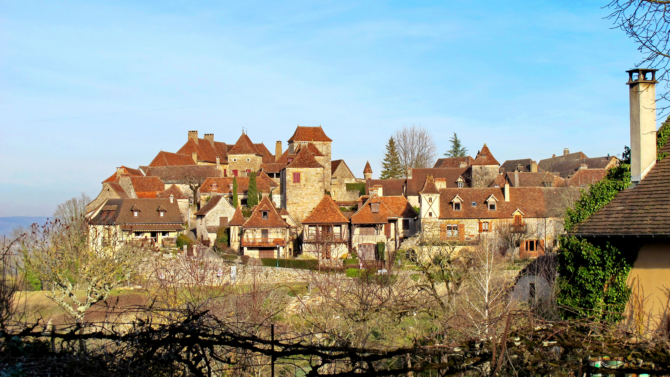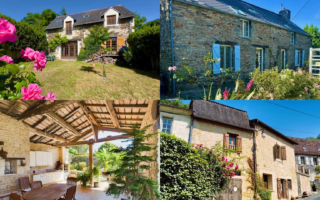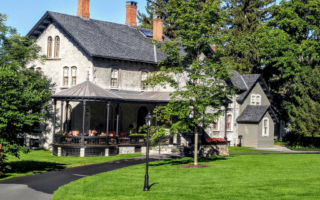From Listing to Closing: Mastering the Art of Selling Property in France

Matthieu Cany shares his checklist for things to keep in mind when selling your home in France.
While there are many reasons for wanting to part with a property, all sellers have one key objective in common: to sell at the best possible price in the shortest amount of time. Latest findings, published by the Statista Research Department, reveal that the average time required to sell a property in France is 82 days. This, of course, depends on the property location and condition but gives sellers a good idea of the time span to expect.
Although the idea of a sale sounds fairly straightforward, there are many important details and strategic steps to be taken into account, some of which will help you speed up the sales process.
DIAGNOSTIC SURVEYS

While structural surveys are not common in France, as the seller it’s your responsibility to provide certain specific surveys to review and verify the condition of the property. Known as the Dossier de Diagnostic Technique (DDT), the property will be tested for:
- Lead and asbestos
- Gas installations and electrical wiring
- The condition of septic tanks (if applicable)
- EPC rating/energy efficiency
- Termites
- Natural or industrial risks
- Swimming pool safety (if applicable)
It’s important to note that all tests need to be conducted before the property is sold while the energy efficiency survey must be carried out before the property is even marketed.
Top tip: also check the validity of each test to ensure it doesn’t expire before the sale is finalised.
Sellers are legally obliged to disclose all of the property’s defects as well as tenancies and licenses including planning consent associated with the home. Failure to do so will most likely result in a court declaring the sale invalid and void any sales agreement.
GET A VALUATION

Once the diagnostic surveys have been conducted and if no major repair work is required, we would recommend sellers to get in touch with a number of local estate agents to arrange a property valuation. Note that agents are not permitted to charge for this service.
When inviting agents to evaluate your property, they will aim to find and highlight your home’s unique selling points but also discuss any issues such as structural problems that could influence buyers’ decisions. Agents will analyse the size of your property’s rooms and consider any renovation work you have conducted that could have added value.
Another key deciding factor for the bottom line is your property’s physical location and its proximity to nearby villages, towns and lifestyle offerings. The closer to amenities, the better.
In addition to your agent quotations, we recommend carrying out your own market research to ensure that you are comfortable and satisfied with the suggested asking price. Online listings of similar properties in your area will give you a current indication of market values, while the online Land Registry (Cadastre) is also available to the public and an excellent source of information. If you are curious about the value of your French property, some agencies, Sextant Properties included, have online valuation tools.
For further independent advice, we suggest contacting the local notaire who will have a general overview of the area’s property prices. Again, this service should be offered without charge. This brings us to the next step…
APPOINT A NOTAIRE

A state-appointed notary or notaire always plays a key role in the sales process of French property as he or she will ensure that all the paperwork and procedures are carried out correctly and under consideration of the law. In addition, your notaire will also act as conveyancing solicitor but, as the seller, you can also choose to get your own property solicitor too. The notaire will, however, by law still play an integral part in the process. The seller and buyer can use the same notaire or appoint their own separate notaires (in which case the two notaires share the fee).
SIGN THE CONTRACT

Once a buyer has been found, your agent or the notaire will draw up the sales agreement, most commonly called the compromis de vente. This is a quick process and usually takes place around a week after a verbal offer has been made. The agreement represents the interest of the seller and buyer so any pre-sale conditions and terms that have been agreed upon will be included. Once signed, sellers face a 10-day cooling-off period during which the buyer (but not the seller) can change their mind.
FINALISING THE SALE

Once the cooling-off period has concluded, the buyer will be required to pay the deposit which is held by the notaire. On average, the deposit is 10% of the agreed sales price. If, at this stage, either party should decide to pull out of the compromis de vente, there are penalties to be paid. If the buyer decides not to go ahead, he or she will lose their deposit.
If you, the seller pulls out, you would not only have to return the deposit but likely have to pay an additional 10% of the sale price as compensation.
THE FINISH LINE
To close the sale, all parties will be required to sign the acte de vente, which normally takes place at the notaire’s office (but can be done via power of attorney). Once signed, you are asked to hand over the keys to the property. The notaire will then organise for the remaining balance of the sale price to be paid to you once all taxes have been paid.
Matthieu Cany is the Director of estate agency network Sextant Properties.
Looking for more French property advice?
French Property News magazine magazine is a must-buy for anyone who is serious about buying and owning a property in France because of the unique combination of legal, financial, and tax advice, in-depth location guides, inspiring real-life stories, the best properties on the market, entertaining regular pages, and the most recent property news and market reports.
Lead photo credit : Royonx - Wikimedia Commons
Share to: Facebook Twitter LinkedIn Email
More in contract, estate agent, French property for sale, Selling property, septic tank, swimming pool



